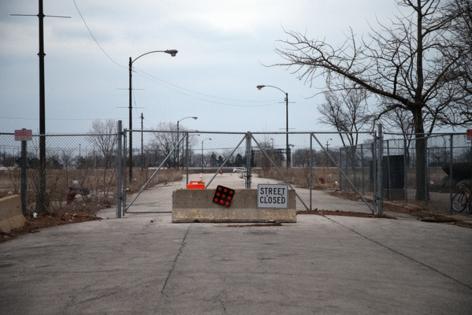Editorial: Trump's Opportunity Zones could help small businesses and struggling neighborhoods
Published in Op Eds
There’s plenty not to like about President Donald Trump’s “Big Beautiful Bill” now being hashed out in the Senate, not least of which is that it would enlarge the national debt. But at least one part of the budget bill stands to help the less fortunate, while still bringing smiles to the faces of the investor class.
Introduced in Trump’s 2017 Tax Cuts and Jobs Act, Opportunity Zones offer generous tax incentives for private investors who put money into low-income communities across the country. The 2025 bill is shaping up to provide a revised, 2.0 version of O.Z.s, as they’re known to their pals. And if the Senate gets its way, as seems likely, the bill not only will update and renew the program, but will also make it permanent.
The program is far from perfect, and the political left has complained that it’s just another tax giveaway to the rich. But the program’s flaws did not deter the city of Chicago and the state of Illinois from participating in it by identifying a slew of economically distressed communities ripe for O.Z. investment.
We suspect that Trump’s local critics will grudgingly embrace a new O.Z. program if it becomes a permanent feature of the tax code. After all, other tools for combating disinvestment in poor communities haven’t exactly worked wonders. This somewhat technical part of the “BBB” could turn out to be a win for Chicago’s South and West sides, as well as struggling suburbs and the deep-red rural areas.
O.Z.s were introduced after a bull market in real estate, stocks and bonds left many wealthy investors with profits to reinvest. Those investors were permitted to delay or eliminate paying taxes on capital gains by rolling their profits into needy parts of the country to develop real estate or build businesses.
Among the 50 states, more than 8,000 census tracts were eligible for the reinvested profits under the program. That included swaths of rural Illinois, as well as struggling spots such as Dolton. That’s right, Pope Leo XIV’s childhood home, is in a south suburb eligible for O.Z. investments.
Even many defenders conceded the program didn’t fully work as planned. Most O.Z. money went into building new residential real estate, especially multi-family housing. That’s good news, as it helps to address the nationwide shortage of affordable homes. But less funding than expected went into other types of real estate projects and still less into creating jobs at new or revived businesses.
Also, predictably, investors directed their funds into zones that were economically better off than others. It’s obviously more prudent to put money into a development that serves a low-income population but also has resources and growth around it.
Still, who would gripe about a rundown part of an otherwise prosperous area getting a little help from private investors? As it turns out, plenty of people griped.
O.Z.s, their critics say, have failed to encourage investment in the most impoverished areas, and too much of the investment may well have happened anyway, without the tax incentive. In practice, the law has allowed windfall tax benefits for building pickleball courts and luxury condos as well as for low-income apartments.
Further, O.Z. investments have mostly failed to bring new, attractive jobs to the residents of poverty-stricken areas. And after the housing stock improves, gentrification sometimes pushes out residents the program was supposed to help.
You know that old saying about Democracy being the worst form of government except for all the others? O.Z.s are similar. They were never going to be a magic bullet for eliminating poverty, but they’re better than many of the alternatives.
A research study published earlier this year found that O.Z. housing has cost taxpayers about $26,000 per unit, a fraction of the cost for government-built affordable housing. Remember, Mayor Brandon Johnson’s Fifth City Commons project $884,000 per taxpayer-subsidized rental unit. And evidence shows the program has increased housing availability in places that need it, although not necessarily the ones that need it the most.
The push to renew O.Z.s has an influential champion in Idaho Republican Sen. Mike Crapo, who chairs the Senate Finance Committee, and it strikes us as a ray of sunshine compared to so much else in the fiscally irresponsible GOP budget bill.
We’d like to see the 2.0 version of O.Z.s provide more incentives to help the poorest of the poor communities, and water down proposed rules that would overly favor rural America. But if O.Z.s can create housing in neglected areas that otherwise would get hardly any attention and do it at a lower cost to taxpayers than alternatives, bring ‘em on.
_____
©2025 Chicago Tribune. Visit chicagotribune.com. Distributed by Tribune Content Agency, LLC.

























































Comments